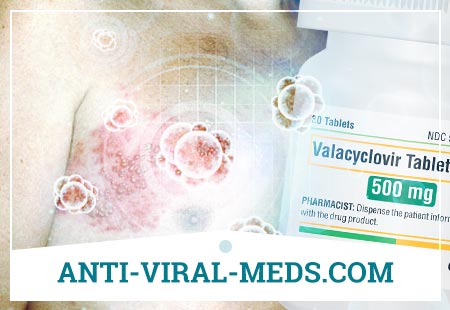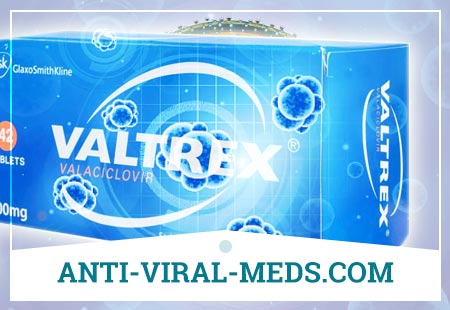The Herpes Simplex Virus, or the Human Herpesvirus as known within the homeopathic circles, is a painstaking virus that affects humans. There are two types of this virus namely: The HSV-1 virus and the HSV-2 virus.
While the HSV-1 virus is responsible for cold sores in and around the mouth, the "sibling", the HSV-2 is the one responsible for causing the notorious genital herpes, the one that affects a lot more celebrities than substance abuse. The Herpes Simplex Virus can be classified as follows:
- Group - Group I (dsDNA)
- Order - Herpesvirales
- Family - Herpesviridae
- Subfamily - Alphaherpesvirinae
- Genus - Simplexvirus
- Species - Herpes Simplex Virus 1 & Herpes Simplex Virus 2
As it's usually the design with viral infections, early detection of the herpes virus is very crucial because it can end up saving you a lot of discomforts while at the same time protecting your loved ones. After the doctor's accurate diagnosis, he or she will give you the required medication to slow down both the reproduction as well as the shedding processes of the virus, making the patient less infectious.
After infection, the herpesvirus invades the cells where they are carried to the skin for replication and shedding purposes. And this is why limiting contact with people is very important. And that's when the flu-like symptoms will start manifesting as your body automatically jump-starts the manufacture of antibodies.

How Does the Herpes Simplex Virus Invade the Cell?
The Herpes Simplex Virus is more intelligent than it's been credited - no wonder it always outsmarts the immune system, metaphorically speaking. As soon as a person has been exposed to the Herpes Simplex Virus, the first thing they do is attach themselves to the cell membranes of the nearest cells. This process is made possible thanks to the glycoproteins on the outside the herpesvirus.
These glycoproteins will attach the virus to the transmembrane receptors found on the surface of the cell membrane. These transmembrane receptors will eventually be pulled into the cell membrane and with it, the contents of the virus. In the end, the gB glycoproteins will end up puncturing its way into the cell, allowing the virus a clean and flawless entry into the cell.
The fusion of the Herpes Simplex Virus and the cell nucleus is what finally leads to the formation of a complex immediately after the genetic inoculation takes place. Genetic inoculation is simply the process by which the viral capsid ejects its DNA contents into the cell nucleus leading to the creation of a complex.
And it is because of all these "smooth" processes that the Herpes Simplex Virus is so good at evading the wrath of the immune system. The herpes virus will also trick the antibodies by messing up with the MHC class I antigen presentation which is on the surface of the infected cell.
The Relationship Between Alzheimer's Disease and The Herpesvirus
Though still under experimentation, experts are strongly convinced of the existence of a possible link between the Herpes Simplex Virus and Alzheimer's Disease. This is because HSV-1 is rather infamous for its vigilance in the destruction of the nervous system while the Alzheimer's Disease stems from, well, you guessed right, the degradation of the nervous system especially in the brain.
The first report to ever touch on this possible link was first published in 1979. And by 1997, it was determined that without the presence of the gene allele, the epsilon4 allele of the APOE gene to be precise, the HSV-1 would lose its ability to cause neurological degradation.
Thousands of experiments have been carried out after the first report on the subject was publish and despite a lot of speculation, the experts are yet to stumble on a tangible breakthrough.
Symptoms of A Herpes Simplex Viral Infection
Just like it's the case with any viral or bacterial infection, the entry of the notorious Herpes Simplex Virus into one's body will evoke a definite reaction from the immune system. Such kinds of reactions are what we've come to know in Layman terms as the symptoms of a particular ailment. Some of the most obvious symptoms that point to a herpesvirus infection include:
- Mild to extreme itching on the skin as well as the areas in and around the mouth
- Blistering sores either in/on the mouth or genitals, or both
- One might experience pain during urination especially in the severe case of genital herpes.
- One might suffer from fever though this varies from one person to the next
- General loss of appetite
- A case of recurring headaches
- Swollen lymph nodes which may or may not be painful. Again, all these will be highly dependent on the individual's genetic constitution.
- General body fatigue or tiredness
It's also very important to note that one might be infected by the herpes virus and still not display any symptoms. That's why a regular checkup is encouraged especially after an unprotected intimate encounter with a stranger.
Can An HSV-1 Infection Cause Genital Herpes as A Result of Oral Sex?
As earlier mentioned, both HSV-1 and HSV-2 are identical for the most part. So yes, it is possible to for a person with herpes sores to pass the virus to another person through oral sex. And as the dictum says, it's better to be safe than sorry. Therefore, always remember to take the necessary precaution as it only takes a single touch to contract herpes.

What Is the Difference Between HSV-1 And HSV-2?
To be honest, there aren't that many differences between these so-called "viral siblings". As a matter of fact, the two have more in common than they do in distinction. One way to distinguish them is through their predominant modes of transmission. While the HSV-1 is predominantly transferred through kissing, the HSV-2 is transmitted predominantly through unprotected sex.
Apart from kissing, the HSV-1 can also be transmitted through sharing lip balm and sharing lollypops. HSV-2 can also be transmitted through sharing makeup, sharing clothes and generally coming in contact with a contagious person experiencing an outbreak. But these other modes aren't that predominant and therefore don't hold much water.
Also, the fact that a person can easily get genital herpes through oral sex also goes a long way in blurring the line separating these viral brothers. HSV-1 can also be transmitted when the infected party is both asymptomatic and not experiencing an outbreak. In conclusion, despite the fact that HSV-1 HSV-2 and different on a family level, they still have more than a lot in common.
How to Treat the Herpes Simplex Viral Infection Successfully
There are quite a number of ways of treating herpes simplex viral infections and doing so as effectively as possible. And just like it's the case with any given ailment, early detection of a herpesvirus infection will end up saving you a lot of discomforts. And for this to happen, you'll have no other choice but to learn all you can about the virus.
Unfortunately, Herpes Simplex Virus has no cure. But that doesn't mean one cannot enjoy a normal life after contracting the virus. Apart from limiting your discomfort, for the most part, early treatment and awareness will also reduce the chances of spreading the infection by a huge margin.
The medication used in the treatment of Herpes Simplex Virus infections can either be administered by injection or the ingested in the form of pills. Either way, the patient will be expected to stick to the doctor's prescription if they want to keep their condition in check.
How to Successfully Curb the Spread of Herpes Simplex Virus
As the dictum goes, prevention is better than cure. Therefore, learning how to keep yourself protected from the herpes simplex infections should always be your number one priority. Without further ado, there are a number of things you can start doing in order to reduce the chances of getting infected by this stubborn virus:
- Umpteenth washing of your hands using clean water and antibacterial soap and doing so on a regular basis.
- Avoiding unnecessary physical contact with people including those you know as well as those you don't know.
- Limiting or completely getting rid of oral sex with strangers. You can also limit kissing to your lover only and more so especially during an outbreak.
- Always wearing a condom when having sex especially with someone you've just met.
- Refrain from sharing utensils and cutlery. And in case of a shortage, don't forget to wash thoroughly before use.
- Avoid sharing lip balm, towels, clothing and makeup with anyone.
The above-mentioned steps can also be used by a person who is infected with the Herpes Simplex Virus. This is the only way he or she can protect other people from contracting the virus while at the same time protecting himself from the risk of reinfection.
And since practice makes perfect, everyone should get into the habit of practicing all the above instead of waiting for an HSV-1 or HSV-2 outbreak before they become responsible. If we all adopt these practices, incorporating them into our day to day habits, then the rate of herpes simplex related infections will certainly slow to a screeching halt especially in the long run.
Which Part of The Demography Is Highly Susceptible to Herpes Infections?
Before we get into that, it is important to note that anyone can contract the Herpes Simplex Virus upon exposure. But this doesn't change the fact is that the herpes simplex viral susceptibility varies from one collective or group to the next. For instance, in-depth research has revealed that women are more likely to contract the virus compared to their male counterparts. This has more to do with the female biology than anything else.
Also, people with low immunity tend to have much bigger problems dealing with the Herpes Simplex Virus than healthier people. The same applies to people who live reckless lives vs. those who are live responsibly. And by living recklessly I simply mean people who constantly abuse drugs, have unprotected sex and party excessively.
These reckless people are highly likely to be infected with the virus than their counterparts. For example, people who participate in unprotected sexual escapades are at a much higher risk of contracting the Herpes Simplex Virus than those who wear protection. And this is so because of a number of reasons:
First and foremost, these people may be too high to acknowledge the importance of using protection. Secondly, their immune systems are likely to not be fully equipped to fight off a virus as strong and as stubborn as the Herpes Simplex Virus. Last but not least, unborn children being carried by infected mothers are also at risk of being infected at birth.
Sadly, the chances of infection will significantly increase if the mother is experiencing an outbreak at the time of birth. It, therefore, goes without saying that a lot has to be done to promote the awareness of HSV-1 and HSV-2 virus so as to prevent it from spreading as fast as it does.
Conclusion
As you might have noticed, no one is exempted from a Herpes Simplex Virus infection. Therefore, promoting awareness while at the same time taking the necessary precautions is the best way of stopping the situation from exacerbating. Always be careful not to take unnecessary risks that might end up exposing you to this extremely crafty virus.
It will also be in your best interest to ping your physician and booking for a regular checkup. Despite the fact that there is no cure for a herpes infection yet, there are quite a number of effective and affordable treatments that are at anyone's disposal. Therefore, being infected with herpes doesn't automatically spell doom or condemn one to hell.
With proper medication, diet and a change in behavior, anyone can manage the condition without even breaking a sweat. A change in behavior is necessary because it not only limits any chances of infecting others during an outbreak but also reduces the chances of reinfection.
In addition to all the above tips, you can use to manage the condition, understanding what triggers an outbreak is also very important. Therefore, avoiding stress and sunburns will definitely go a long way in keeping the Herpes Simplex Virus infection in check.
 AU
AU UK
UK CA
CA DE
DE FR
FR IT
IT ES
ES



